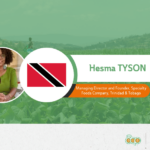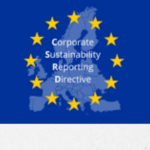- 21/05/2024
- Posted by: Gaetan Dermien
- Category: Uncategorized

Potential MRLs reduction for thiacloprid, a widely used pesticide on fruits and vegetables
Thiacloprid is a neonicotinoid insecticide used on a wide range of horticultural crops to control sucking and chewing insects.
The EU’s approval for thiacloprid has not been renewed in 2020 due to concerns about its toxicity and groundwater contamination risks. Consequently, in July 2023, the European Commission proposed setting maximum residue levels (MRLs) for thiacloprid to the limit of determination (LOD) in all products, except where import tolerances or Codex MRLs are considered safe (G/SPS/N/EU/651). However, the European Parliament rejected this proposal and requested all MRLs to be reduced to the LOD, citing concerns about public health and the impact on bees.
Subsequently, France took proactive measures by implementing a national regulation prohibiting the placement of fruit and vegetables containing thiacloprid above the LOD of 0.01 mg/kg on the French market. This temporary Regulation remains valid for one year or until a new EU Regulation is adopted.
The Commission presented the 8 May a new proposal (G/SPS/N/EU/763) on thiacloprid MRLs in which all MRLs are lowered to the LOD. These new MRLs are expected to enter into application by mid-2025.
Until then, current EU MRLs apply except in France, where MRLs for fruit and vegetables are reduced to the LOD from 25 February 2024. The new French MRLs do not apply to fresh fruit and vegetables acquired by the importer or marketer no later than 1 month after the entry into force of the new Regulation. In practice this means that the new MRLs only concern fresh fruit and vegetables acquired after 25 March 2024.
Important horticultural products from ACP countries for which new MRLs could have an impact are summarized in table 1. Considering the wide range of applications and the very short grace period, users of thiacloprid on products for the French market are advised to look for alternatives immediately. Should you encounter specific issues regarding this matter, please contact COLEAD at: network@colead.link.
COLEAD has compiled a dashboard presenting registered products containing thiacloprid and their respective conditions of use in ACP countries. This also outlines the ACP countries where the EU MRL changes for thiacloprid might have repercussions for export. It is based on information extracted from the latest national lists of registered plant protection products made available by 34 ACP countries. COLEAD is making all effort to provide you with relevant and updated information. To confirm if your country is included and the version of the list of registered products considered in this review, please refer to the list here.
If your country is not listed, we highly recommend reaching out to your national authorities to check which products might be affected by these changes.
What should ACP producers/exporters do now?
It is essential that suppliers of fruit and vegetables to the French market are aware of these changes, verify their use of thiacloprid, and take measures to ensure compliance with the new MRLs as soon as possible. In this case, as the level is reduced to the LOD, it might not be possible to meet the new MRLs, and growers will have to look for alternative crop protection solutions. This is essential to avoid interception and destruction of exported produce at the French borders. Producers and exporters should also take measures to ensure compliance with the upcoming EU lowered MRLs.
Competent authorities of countries that are members of the WTO can submit comments on the EU’s proposal by emailing the EU SPS Enquiry Point until 7 July 2024.
If you have any major concerns about these changes, and fear that you will be left without an effective and locally available alternative, please contact COLEAD at: network@colead.link.
For further information on the proposed new rules and their implications, see Maximum residue levels for thiacloprid record developed by AGRINFO programme implemented by COLEAD.
References
Lewis, K.A., Tzilivakis, J., Warner, D. and Green, A. (2016). An international database for pesticide risk assessments and management. Human and Ecological Risk Assessment: An International Journal, 22(4): 1050-1064. DOI: 10.1080/10807039.2015.1133242
République Française (2024). Arrêté du 23 février 2024 portant suspension d’introduction, d’importation et de mise sur le marché à titre gratuit ou onéreux en France de fruits et légumes frais provenant de pays tiers à l’Union européenne ayant fait l’objet d’un traitement avec un produit phytopharmaceutique contenant la substance thiaclopride.
European Commission (2023). Draft Commission Regulation [rejected by the European Parliament] as regards maximum residue levels for thiacloprid in or on certain products.
European Commission (2024). Draft Commission Regulation as regards maximum residue levels for thiacloprid in or on certain products.
This activity is supported by the Fit For Market Plus programme, implemented by COLEAD within the framework of Development cooperation between the Organisation of African, Caribbean and Pacific States (OACPS), and the European Union (EU).
This publication has been produced with the financial support of the EU and the OACPS. Its contents are the sole responsibility of COLEAD and can under no circumstances be regarded as reflecting the position of the EU or the OACPS.





![EU and GB approval changes (August-November 2024) 9-FFM+-[ENG]](https://news.colead.link/wp-content/uploads/2024/06/9-FFM-ENG-150x150.jpg)